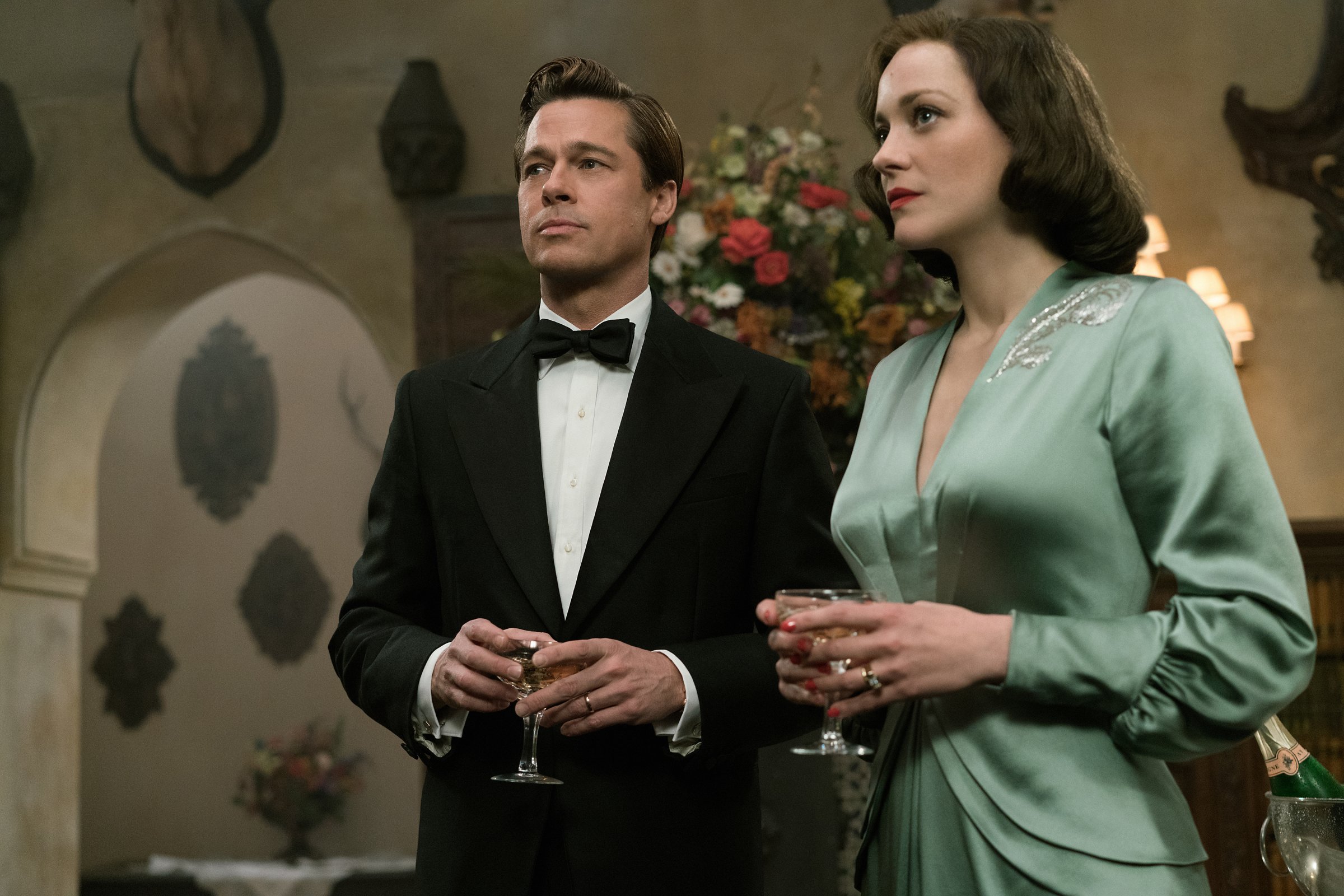
As our world has gotten bigger, noisier and more complex, things that used to seem simple have become incredibly complicated. Even old-fashioned pleasures now come tricked out with technological bells and whistles—although sometimes, almost against the odds, the results can surprise you.
Robert Zemeckis’ gorgeous nostalgia dream Allied is a case in point. Zemeckis has made some terrific movies (Used Cars, Cast Away), some wickedly sharp ones (Death Becomes Her) and at least one vile eyesore (The Polar Express). His obsession with motion-capture technology, in particular, hasn’t served him well. But Allied is something else: The picture, written by Steven Knight, is a riff on wartime romances—Casablanca is the clear model and muse. Its story and dialogue are so straightforward and comforting that even when you think you can hear the next beat coming—and you will—the finale still comes as a cathartic surprise.
But the visual beauty of Allied, set in early-to-mid 1940s Casablanca and London, is an illusion made possible only by technology: In the opening scene, Brad Pitt’s Canadian spy-on-the-fly, having just touched down in the Moroccan desert, emerges like a mirage against the sand dunes. Decked out in a turban and sunglasses, he’s only a minor Peter O’Toole, but that still isn’t half bad. Yet even if Pitt is real, the dunes aren’t: They were created on a special set constructed to allow elaborate visual-effects enhancements. In a later scene, footprints were actually sculpted right into the dunes: Zemeckis the perfectionist simply will not stand for messy, free-for-all sand anarchy.
Still, there are worse sins, and Zemeckis’ care and control pay off. When Pitt’s Max Vatan—such a fabulously, ridiculously perfect name!—lands in Casablanca, his first order of business is to meet his fellow operative for the first time. He must find her at a crowded dinner and greet her as if she were his wife. Luckily, she’s easy to spot, because she’s Marion Cotillard—or, rather, Marianne Beauséjour—and she’s wearing a shimmery deep-purple dress that looks like the fleeting layer between darkest night and sunrise. Although Max is all about business, focused on the duo’s upcoming, risky Nazi-killing mission, Marianne likes to live dangerously. She seduces Max, and you can’t blame him for yielding to her charms, which are both feral and fawnlike.
Much of the pleasure of Allied lies in watching beautiful people swanning through beautiful—or even just painstakingly re-created—locales. Max and Marianne work their undercover magic, elegantly, in ’40s Casablanca, a cosmopolitan dreamland of mosaic-decorated facades and satiny, twinkling nightclubs. Later, the action switches to war-torn England. The skies are gray by day, and pierced by ominous searchlights at night. But by now, the two spies have succumbed to coupledom, finding enormous happiness in their love: If this is a terrible world, it’s also a cozy one, at least until treachery creeps in.
These settings are clearly false, highly movie-fied worlds. Nothing in real life looks like this. Not even old movies, created on soundstages and sets, looked like this. We tend think of old movies as being innocent just because they’re old, but that’s just a way of condescending to them. Even seemingly simple movies can work on us in mysterious, confounding ways, lodging somewhere in our hearts and brains. Their sophistication can be stealthy. Allied is a fascinating and novel experiment, sophisticated in a different way: Zemeckis uses technology to elicit the feeling we get when we watch old favorites. It’s almost like Smell-o-Vision, but with intensified visuals instead of aromatics. Even within this highly synthetic world, Pitt and Cotillard give sturdy, coded performances that feel naturalistic, not phony: They understand clearly that their chief mission is to tap the tradition of melodrama, and they take it seriously. Somehow, almost incomprehensibly, it all works. Allied looks old but smells new, and the scent is heady.
More Must-Reads From TIME
- The 100 Most Influential People of 2024
- The Revolution of Yulia Navalnaya
- 6 Compliments That Land Every Time
- What's the Deal With the Bitcoin Halving?
- If You're Dating Right Now , You're Brave: Column
- The AI That Could Heal a Divided Internet
- Fallout Is a Brilliant Model for the Future of Video Game Adaptations
- Want Weekly Recs on What to Watch, Read, and More? Sign Up for Worth Your Time
Contact us at letters@time.com